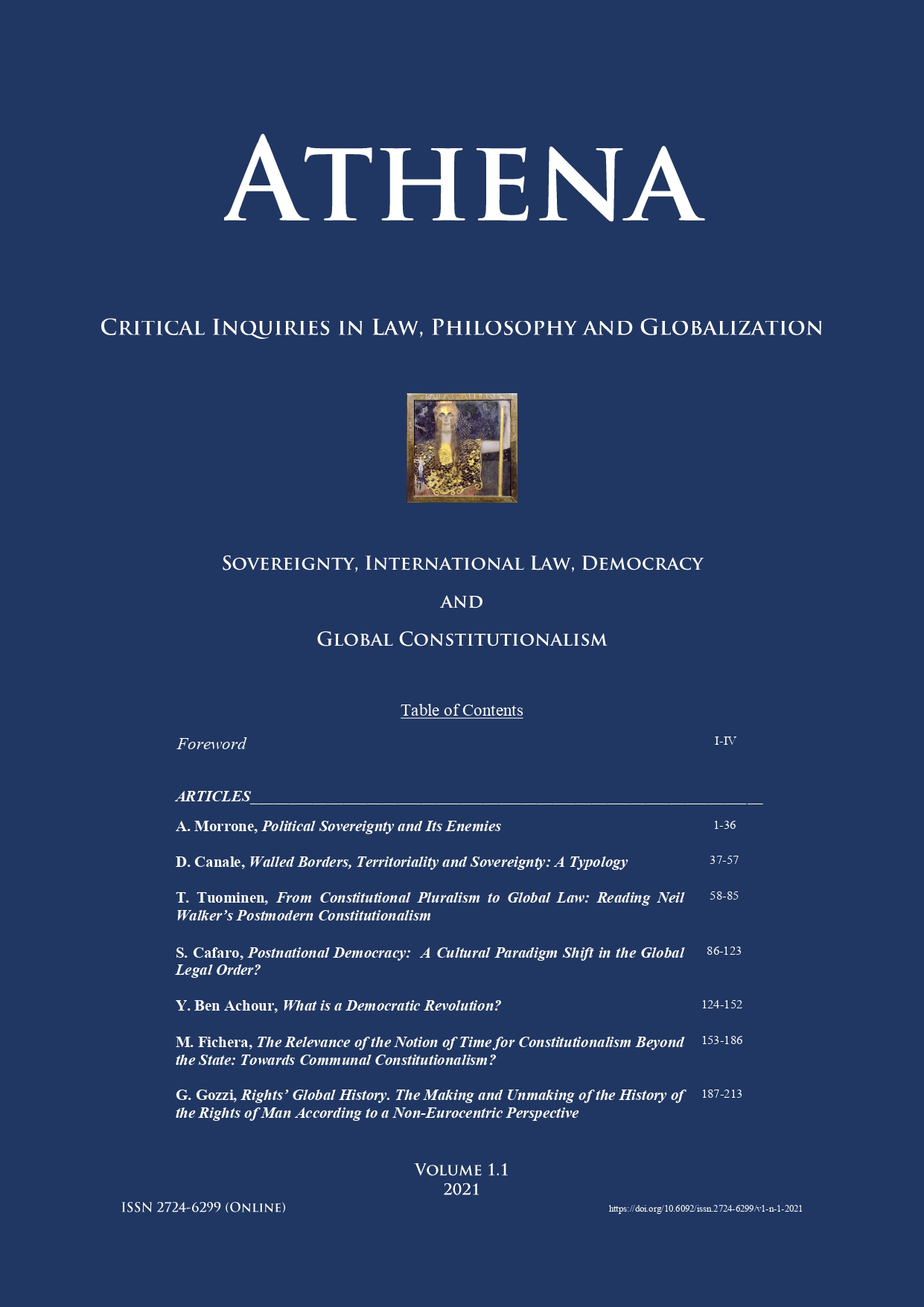The Relevance of the Notion of Time for Constitutionalism Beyond the State: Towards Communal Constitutionalism?
DOI:
https://doi.org/10.6092/issn.2724-6299/12479Keywords:
constitutionalism, transnational constitutional law, international law, constitutional time, kinds of constitutionalism, domestic lawAbstract
The overproduction of material hinting at or announcing the emergence of a form of constitutional law beyond the State (sometimes defined as transnational constitutional law) has caused sceptic reactions increased in recent years. Many scholars have either been wary of employing the constitutional vocabulary too easily or as a form of crystallization of power structures, or have attempted to elaborate new concepts while emphasizing the descriptive and normative appeal of pluralism, or resorting to the less ambitious vocabulary of administrative law. While it is not the purpose of this essay to do justice to the complexity of the debate on constitutionalism beyond the State, its aim is to single out one distinctive element of this project: its transformative nature. In particular, it argues, against H. L. A. Hart’s idea that international law is a static legal order, that the notion of constitutional time is crucial for the purposes of framing the contours of the debate on constitutionalism in general and on its applicability beyond the confines of the traditional State.
Downloads
Downloads
Published
How to Cite
Issue
Section
License
Copyright (c) 2021 Massimo Fichera

This work is licensed under a Creative Commons Attribution 4.0 International License.





